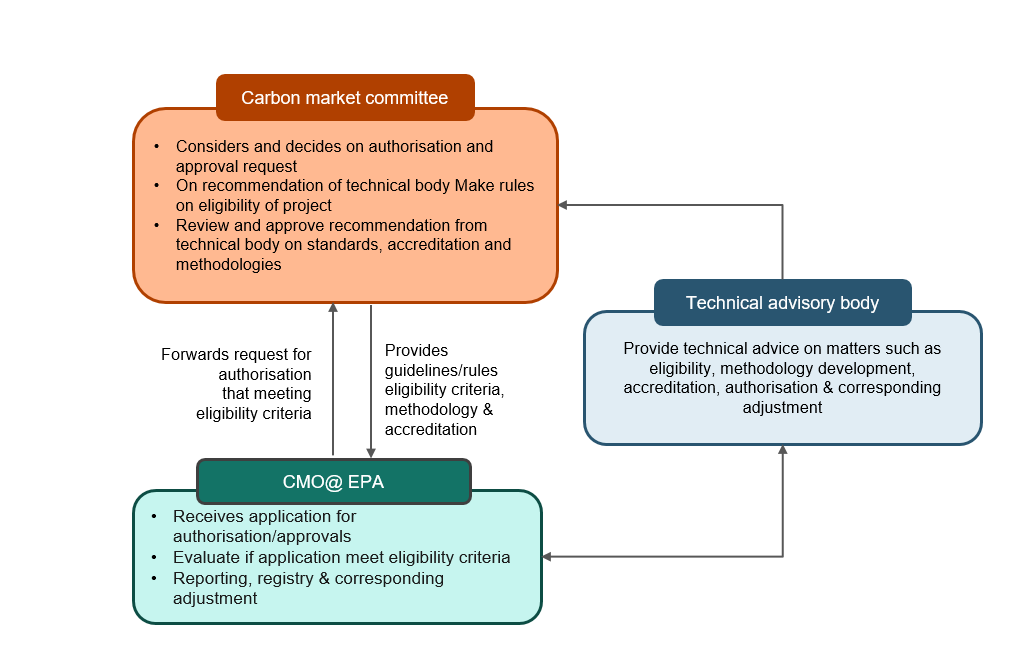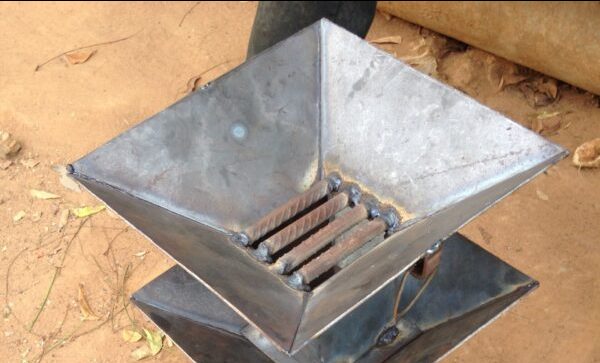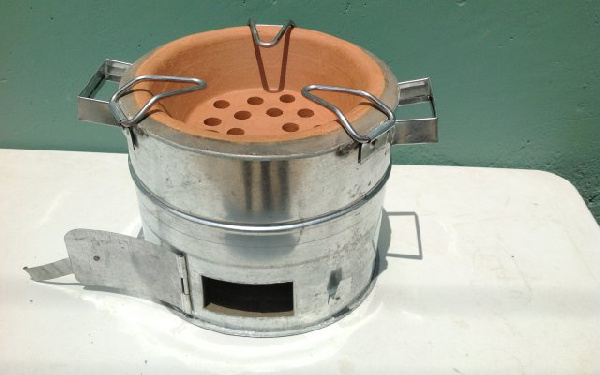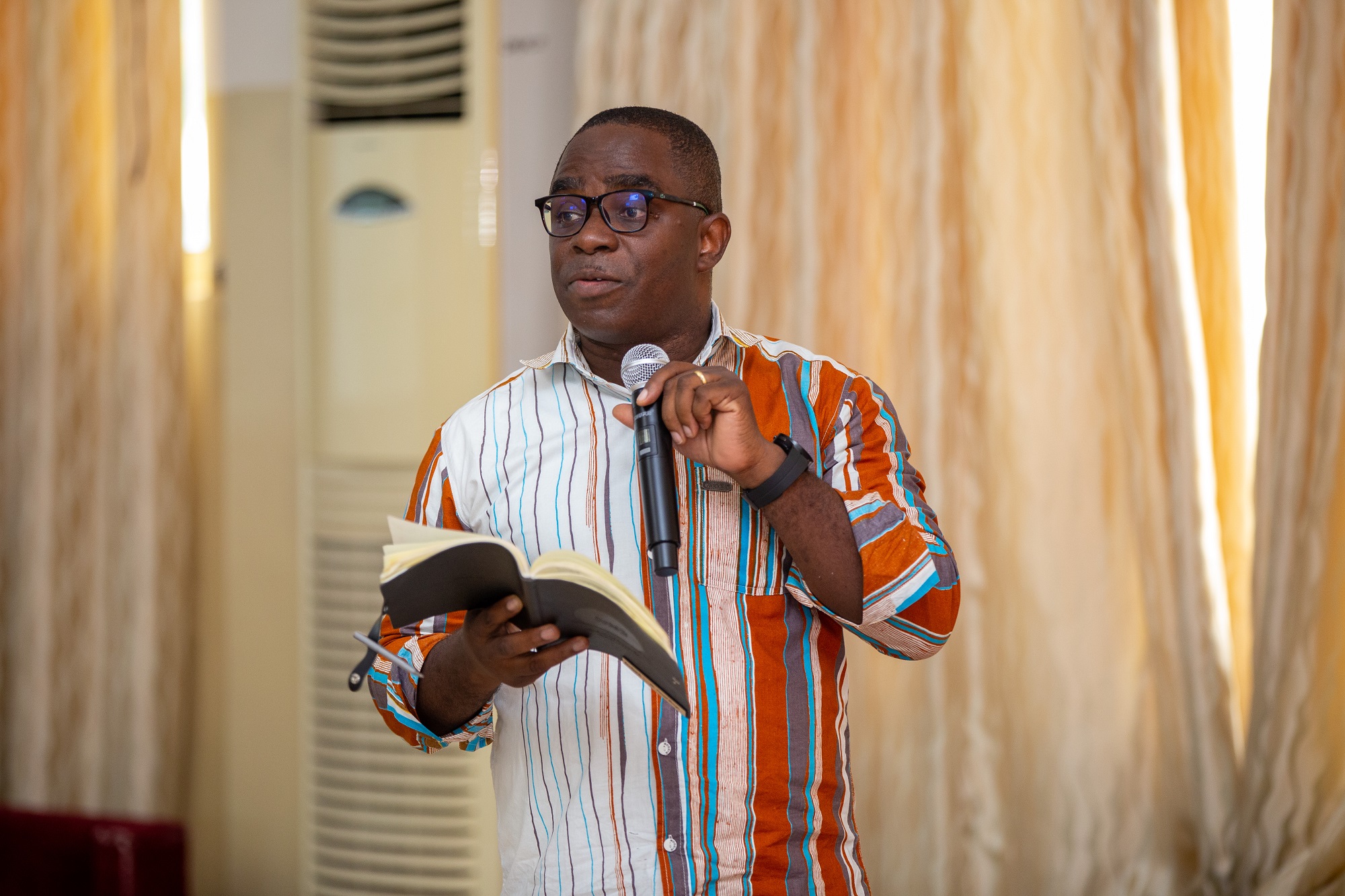[ad_1]
The sun in the month of March can ‘pop a corn’. Today, it is smiling brightly at Apaatanga R/C JHS in the Bongo District. Students began moving to their classroom blocks at the sight of Adagwine, the bell girl.
Guess she is breaking the bias as, arguably, the ‘First Female Bell Girl in Ghana’.
She lifts her wrist to crosscheck the time. With a firm grip on the aluminium bell, she swings up and down, then announces, “break over pleaseeeee”.
[Students of Primary Six move into their classrooms but quickly rush in at the sight of the Science Teacher]
Science Teacher: Good afternoon class
Students [in unison response]: Good afternoon Maaadam.
Science Teacher: Today’s lesson is on ‘Photosynthesis’. You will learn about how plants make their food. They use carbon dioxide in preparation. During our lesson under Respiratory System, I taught you that ‘humans breathe in oxygen and breathe out carbon dioxide’. So we contribute to plants’ food production. Do you understand?
Carbon dioxide production is not limited to humans exhaling but other natural sources such as volcanoes, the breath of animals and plant decay. Also, the burning of fossil fuels like coal, oil and natural gas to generate energy leads to its emission. Climate change which is caused by humans is a global crisis and Ghana has shown potential in leveraging the carbon market to generate revenues.
Ghana is exploring Carbon Market among a list of climate financing tools to achieve its climate change goals.
In my previous piece on the carbon market titled ‘Budget 2022: Why does Ghana want to explore carbon market?’ I explained why the government looked forward to receiving proceeds from the carbon market to support its 2022 Budget Statement and Economic Policy.
This new piece provides a progress report on Ghana’s carbon market as of April 2023.
The Birth of Carbon Market in Ghana
Carbon Market simply refers to the buying and selling of carbon assets among countries and entities. Hence, the commodity being traded is carbon. This form of market can be traced to the Kyoto Protocol which was adopted on 11 December 1997.
The UNFCCC explains that the Kyoto Protocol advised “industrialized countries and economies in transition to limit and reduce greenhouse gasses (GHG) emissions in accordance with agreed individual targets. The Convention itself only asks those countries to adopt policies and measures on mitigation and to report periodically.”
The protocol created a framework where countries can meet carbon emission targets through three market-based mechanisms thus: International Emissions Trading, Clean Development Mechanism (CDM) and Joint Implementation (JI).
The Clean Development Mechanism (CDM) allowed developed countries to offset their emissions by investing in emissions-reducing projects in developing countries. This marked the beginning of carbon trading. Countries buy and sell carbon credits generated by these emissions-reducing projects.
However, the CDM faced criticism for its limited impact and its failure to address the structural issues of global emissions.
Notably, the European Union established the world’s first Emissions Trading System perked on a ‘Cap and Trade System’.
In the beginning in Ghana … the West African country signed up to the Paris Agreement in 2015 with a new goal to limit global temperature increase to well below 2 degrees Celsius, while pursuing efforts to limit the increase to 1.5 degrees.
Kindly note that to trade in the carbon market, the gas must be a greenhouse gas caused by humans therefore this does not include emissions from other natural sources as I mentioned earlier.
Ghana began exploring the ‘Carbon Market’ among a list of climate finance sources. This works in two main forms of the market; Compliance Market and Voluntary Carbon Market. The UNDP explains that, “the compliance markets are created as a result of any national, regional and/or international policy or regulatory requirement. Voluntary carbon markets – national and international – refer to the issuance, buying and selling of carbon credits, on a voluntary basis.”
Ghana operates in the Voluntary Market System through programs such as Reduced Emissions from Deforestation and Degradation (REDD+), Reforestation, Regenerative Agriculture, Nature Based Solutions, Carbon and Methane Capture, and Energy Efficiency Improvements.
Seven years on, Ghana progressed to make two significant developments; thus the approval of Ghana’s Framework on International Carbon Markets and Non-Markets Approaches and the creation of Cooperative Approaches.
- Ghana’s Framework on International Carbon Markets and Non-Markets Approaches: the 143-page document was approved by the Parliament of Ghana in November 2022 with the Environmental Protection Agency as the supervisory body.
- Cooperative Approaches: Ghana created a demand for carbon assets [credits and offsets] through a country-based partnership and private partnership.
1. Country-based partnership; this partnership is created among countries and Ghana has a tally of four at the time of publication. These are Ghana-Switzerland, Ghana-Sweden, Ghana-Singapore, and Ghana-South Korea.
2. Collaboration with non-state actors: Ghana is currently working with four non-state actors at various levels of engagement. These organizations are: Mercuria Energy Trading [MOU stage], Trafigura Environmental Solutions SARL [Exchange of Letter of Intent] , Marubeni Cooperation [In-country mission to Ghana], and British Petroleum [Initial contact].
Below is an image providing an overview on how the Carbon Market works.

In the end … let me simplify the carbon market with a clean cooking stove story.
Awinebotima uses a coal pot to prepare dinner for his 5-member family. He uses GHS 10 worth of charcoal in every cooking process. His meal preparation leads to an emission of 40 amount of carbon which contributes to climate change.

Notice the change, through a clean cooking stove programme, he purchases a clean cooking stove and spends GHS 5 worth of charcoal and emits only 15 amount of carbon in every meal preparation for the same family. This means he spends less amount of money on charcoal and emits less amount of carbon.

The Environmental Protection Agency facilitates the quantifying and trading of the amount of ‘carbon saved’ tagged as ‘Carbon Credit’ and process its trades with countries and entities who have emission targets.
Ghana as a beneficiary receives monetary exchange or technological transfers to advance its climate ambition. Other entities also receive monetary gains depending on the project or programme.
Successes and Challenges
Ghana’s Finance Minister, Ken Ofori-Atta during the reading of the 2022 Budget Statement and Economic Policy stated that:
“A total of 24 million tonnes of carbon emissions out of a target of 64 million tonnes are available for carbon market transactions. Government has successfully put in place the critical policies and regulatory arrangements that will enable Ghana to participate in global carbon markets. This paves the way for both local and international private sector investors and project developers to either independently or with the government, leverage this unique opportunity to trade carbon with countries and corporations with ambitious net zero targets over the next nine years.”
Successes
January 2023
World Bank reported that through its Forest Carbon Partnership Facility (FCPF), Ghana was paid “$4,862,280 for reducing 972,456 tons of carbon emissions for the first monitoring period under the program (June to December 2019)”.
Ghana achieved a milestone in becoming the “second country in Africa after Mozambique to receive payments from a World Bank trust fund for reducing emissions from deforestation and forest degradation, commonly known as REDD+”, it added.
This is the first payment of four under the country’s Emission Reductions Payment Agreement (ERPA) with the World Bank to demonstrate potential for leveraging results-based payments for carbon credits.
The World Bank Country Director for Ghana, Liberia, and Sierra Leone, Pierre Laporte explained that “subject to showing results from actions taken to reduce deforestation, Ghana is eligible to receive up to $50 million for 10 million tons of CO2 emissions reduced by the end of 2024.”
March 2023
The Carbon Market Office‘s website went live with its ‘About Tab’ stating that “Ghana Carbon Market Office (CMO) is the secretariat established to provide administrative and technical services to the general public and support the implementation of the Ghana international carbon market and non-market approaches framework.”
Challenges
- Lack of capacity and infrastructure for monitoring and verifying emissions reductions. To participate in carbon markets, countries must be able to accurately measure and report their emissions reductions, which requires a significant investment in monitoring equipment and staff training. This can affect the revenue accrued since Ghana can either oversell or undersell.
- Perception Issue: a senior environmental scientist at EPA Dr Daniel Benefoh says this is the biggest challenge due to lack of mechanisms to accurately calculate and quantify carbon. This creates mistrust among partners thereby affecting revenue generation.
Unveiling the Face Behind Ghana’s Carbon Market

The Environmental Protection Agency Climate Change Unit hosts the Climate Market Office and performs the functions assigned under Ghana’s Framework on International Carbon Markets and Non-Markets Approaches.
The focal person anchoring Ghana’s carbon market from the unit is Dr. Daniel Benefoh, a senior official at the Environmental Protection Agency (EPA). Dr. Benefoh holds a PhD in Environmental Science from the University of Ghana and has over 20 years of experience working in the environmental sector in Ghana.
He has been involved in a range of environmental initiatives and programs, including the development of policies and guidelines related to carbon market, environmental management, waste management, and biodiversity conservation.
As the Director of Climate Change and UNFCCC Focal Point at EPA, Dr. Benefoh is responsible for overseeing the technical aspects of the agency’s work, including monitoring and regulating pollution and managing environmental impact assessments for development projects.
He is also involved in efforts to promote sustainable development and improve environmental governance in Ghana. Dr Benefoh is a respected expert in the field of environmental science and plays an important role in shaping environmental policy and management in Ghana through his work at the EPA.
[ad_2]
Source link